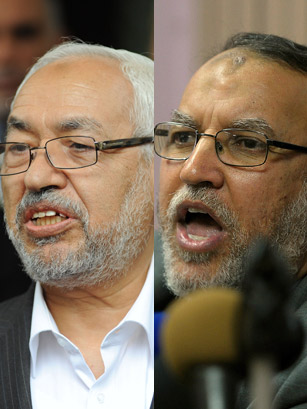
The democratic rebellion that claimed Tunisian leader Zine el-Abidine Ben Ali and Egyptian President Hosni Mubarak among its first scalps appeared on our television screens — and assorted newer media platforms — in the person of young, tech-savvy netizens using Twitter and Facebook to overthrow their countries' sclerotic autocracies and plug in to the cosmopolitan virtual town square of globalization. But the first democratic elections held in those countries made clear that the young urban middle-class revolutionaries didn't represent the majority of their citizens, who instead cast their votes for Islamist parties that had suffered alongside them during the years of repression and that were more expressive of their own worldview. The triumphs of Rachid Ghannouchi's Ennahda Party in Tunisia and the Muslim Brotherhood in Egypt have challenged prevailing Western views about political Islam. There's no question that the more democratic Muslim states are, the less inclined they are to support U.S. regional strategy — we've already seen that much in Turkey and Iraq. But it's to Turkey's example of secular, democratic prosperity rather than Iran's rigid theocracy that Ghannouchi and young Brotherhood leaders like Essam el-Erian are looking for their role model. Thus the year in which Islamists rose to power and proved, at least so far, that the sky won't fall.